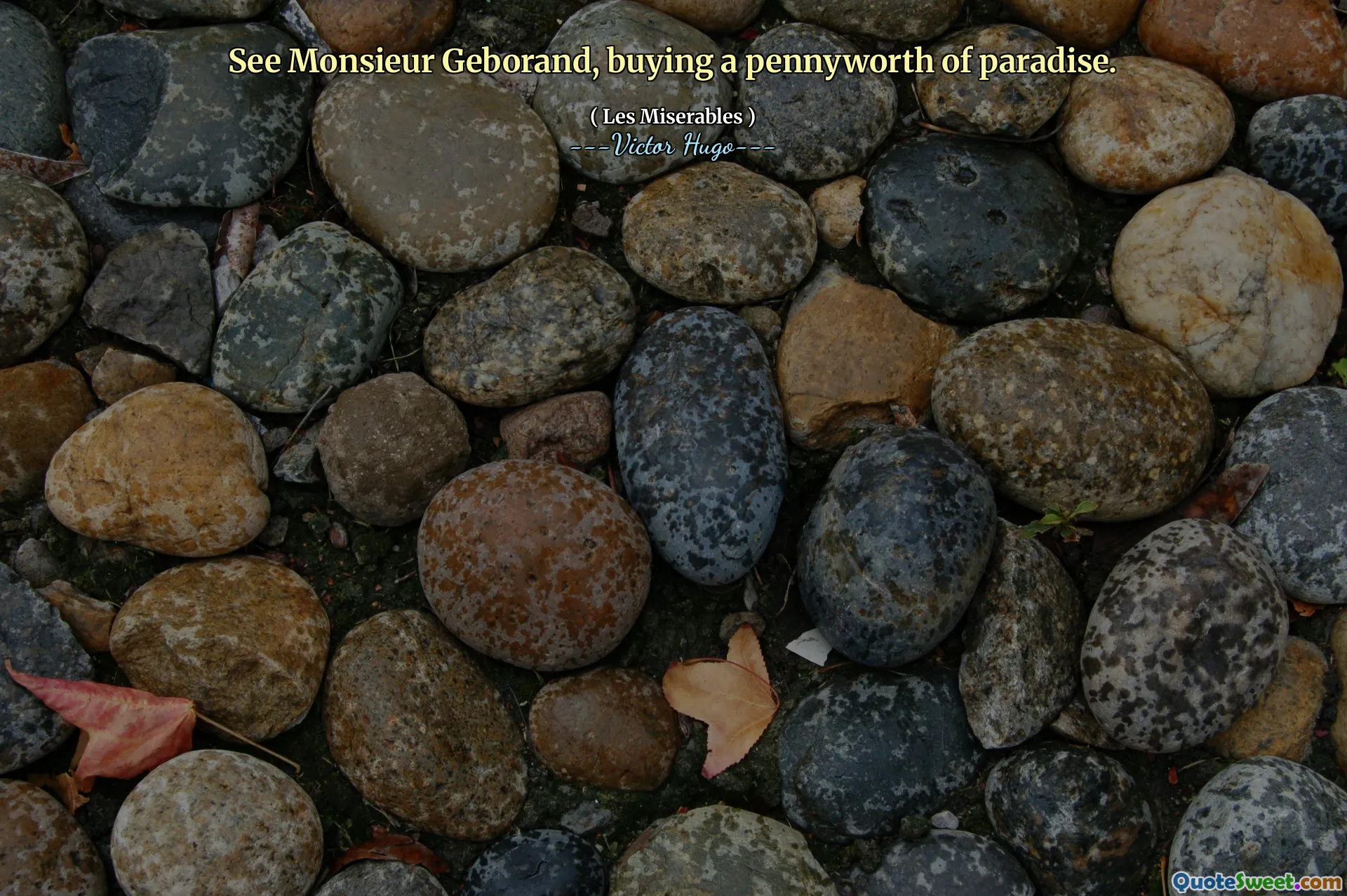
See Monsieur Geborand, buying a pennyworth of paradise.
Victor Hugo's line, "See Monsieur Geborand, buying a pennyworth of paradise," from Les Misérables vividly captures the poignant contrast between the mundane realities of life and the elusive nature of happiness or ideal moments. The phrase "pennyworth of paradise" elegantly conveys the idea of seeking small, affordable pieces of joy or escape in an often harsh and unforgiving world. Monsieur Geborand's act of purchasing paradise metaphorically suggests that individuals, regardless of their status or circumstance, yearn for moments of bliss or peace — even if these moments come cheaply or transiently.
The quote also evokes a subtle commentary on human nature and economic conditions: the notion of "buying paradise" implies that such happiness, though divine or ideal, is commodified. It may force readers to reflect on how society measures joy and fulfillment, where even the most profound experiences are subject to commercial transaction or social accessibility. Hugo, a master of social critique, uses this imagery to remind us of the socio-economic disparities underlying human dreams and the resilience of people like Monsieur Geborand, who strive to find happiness however modest.
This line also enriches the tapestry of Les Misérables, a work deeply invested in exploring human dignity amidst suffering, the pursuit of hope, and the complex interplay between poverty and the human spirit. Ultimately, the quote resonates with a timeless message: paradise or moments of beauty in life might be small and affordable, but their significance is tremendously vast to those who seek them.






